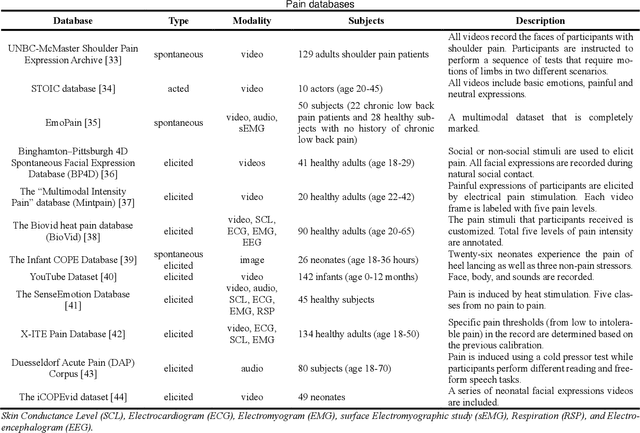How Can AI Recognize Pain and Express Empathy
Paper and Code
Oct 08, 2021



Sensory and emotional experiences such as pain and empathy are relevant to mental and physical health. The current drive for automated pain recognition is motivated by a growing number of healthcare requirements and demands for social interaction make it increasingly essential. Despite being a trending area, they have not been explored in great detail. Over the past decades, behavioral science and neuroscience have uncovered mechanisms that explain the manifestations of pain. Recently, also artificial intelligence research has allowed empathic machine learning methods to be approachable. Generally, the purpose of this paper is to review the current developments for computational pain recognition and artificial empathy implementation. Our discussion covers the following topics: How can AI recognize pain from unimodality and multimodality? Is it necessary for AI to be empathic? How can we create an AI agent with proactive and reactive empathy? This article explores the challenges and opportunities of real-world multimodal pain recognition from a psychological, neuroscientific, and artificial intelligence perspective. Finally, we identify possible future implementations of artificial empathy and analyze how humans might benefit from an AI agent equipped with empathy.
 Add to Chrome
Add to Chrome Add to Firefox
Add to Firefox Add to Edge
Add to Edge